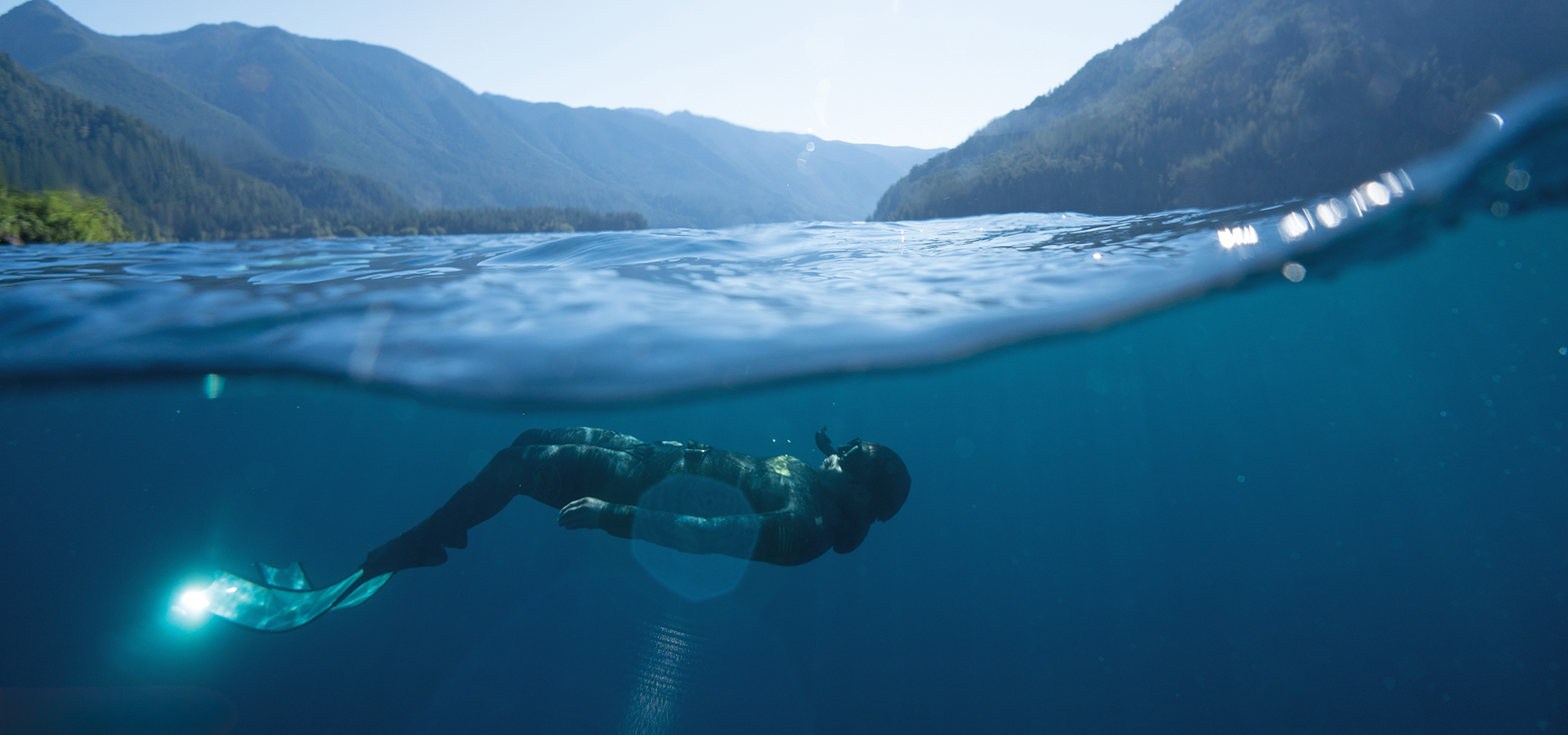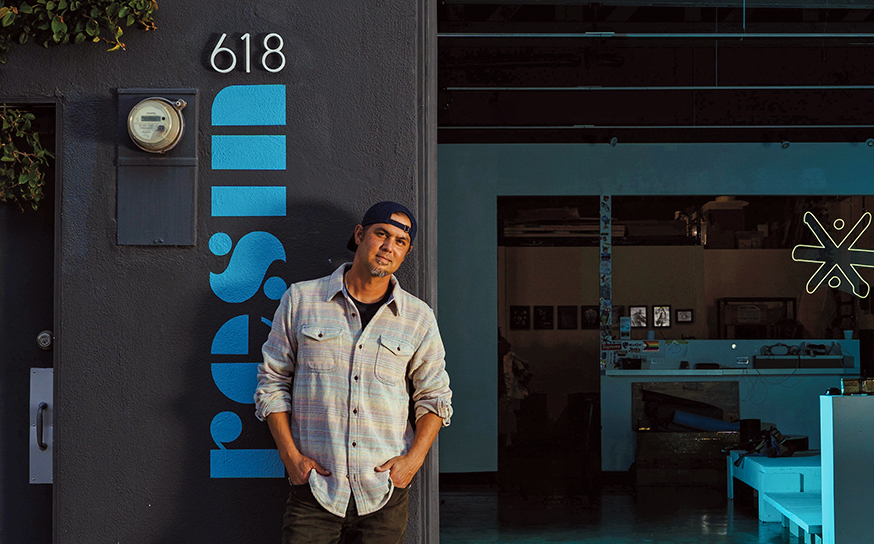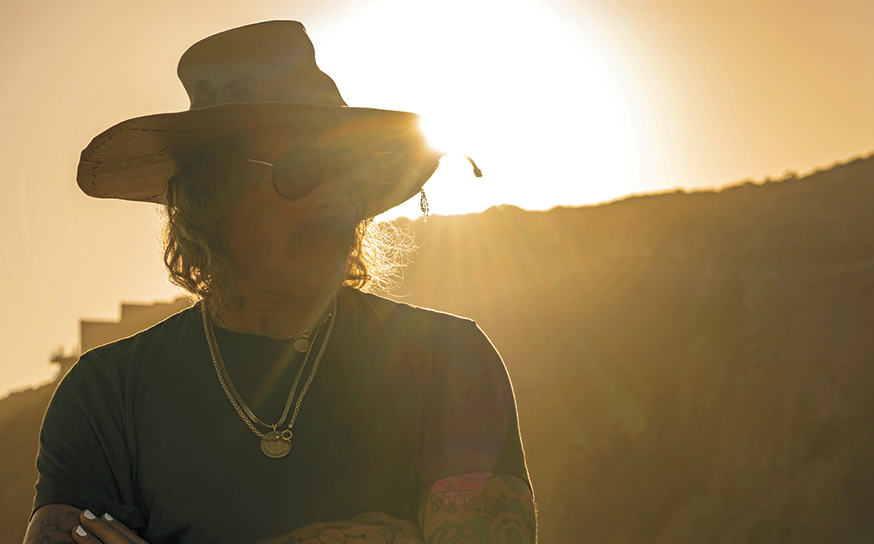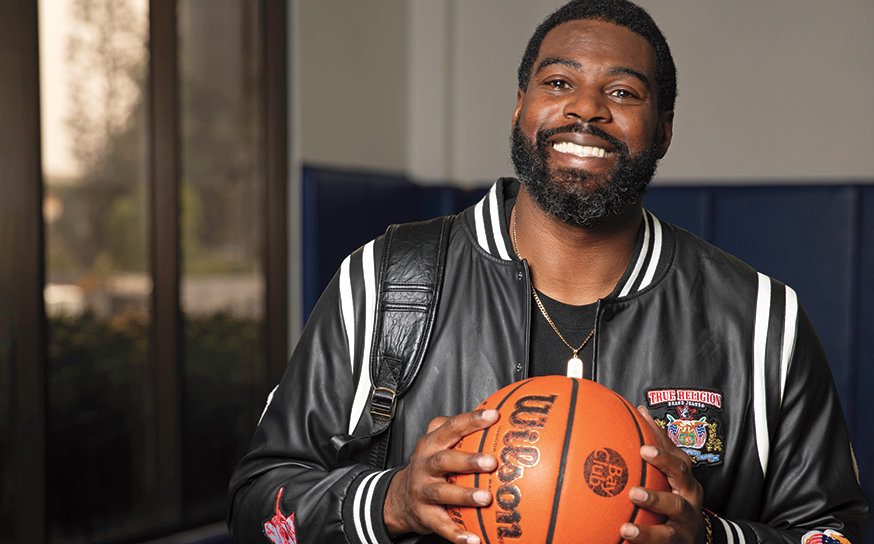Joy Miyatake was born into a family that boasts four generations of professional photographers. Her journey of self-discovery, pictorial storytelling and artistic pursuits to heal generational trauma has roots in her family’s legacy.
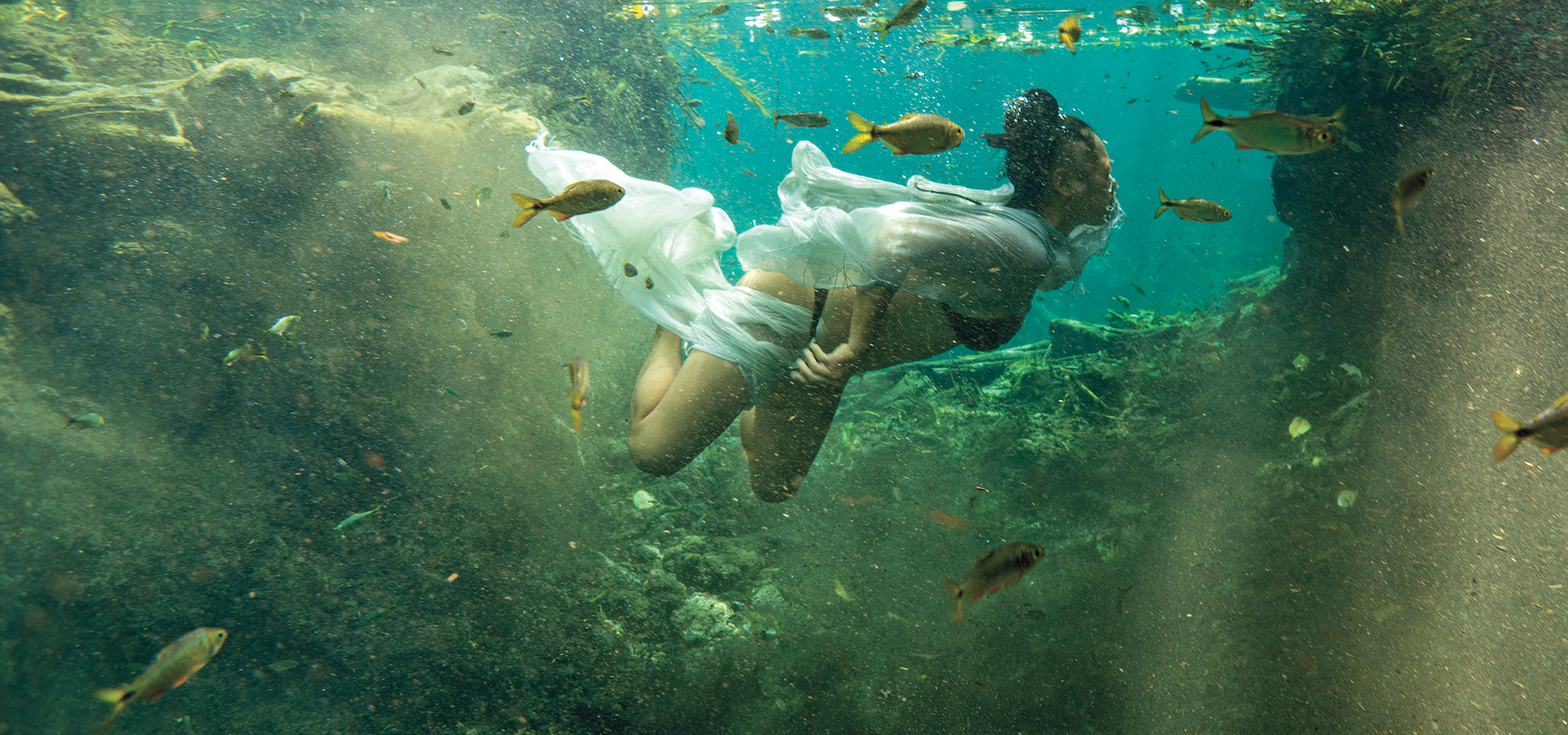
Toyo Miyatake, her great-grandfather, started a photography business in 1923 in Little Tokyo. During World War II, he and his family were interned at Manzanar, one of 10 camps where over 110,000 Japanese Americans were detained.
Toyo famously smuggled a lens and negative film holder into the camp, and later a carpenter created a makeshift camera box for him. He eventually gained favor with administrators at the camp and became the “in-house” photographer.
His work during his internment lasted three years, providing a unique personal collection of life as he saw it through the lens. This gained him notoriety among other great photographers such as Ansel Adams and Dorothea Lange.
Joy’s father, Gary, was also a well-known professional photographer in the South Bay—he often photographed politicians. As a young girl, working in the family business and Gardena studio, she digitized her grandfather’s photos and acted as Gary’s photo assistant for weddings. Along the way, she absorbed the basics of lighting and composition and learned the art of telling a visual story.
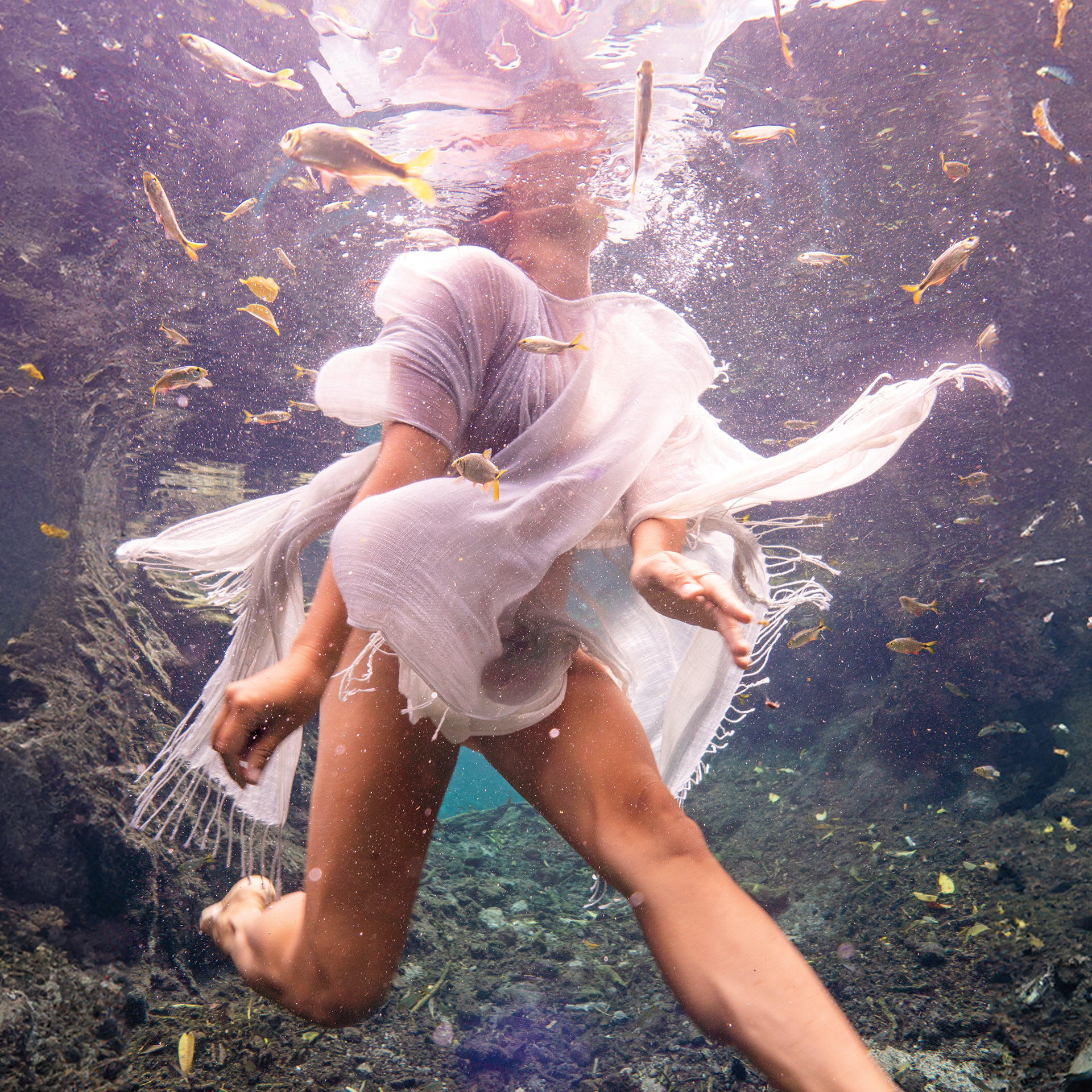
Like many young adults, Joy’s relationship with her father was tenuous at times. Yet they often talked about the fundamentals of photography when reviewing her photos. It was their way of communicating.
While there was some pressure for Joy to take over the family photography business, she was determined to find her path. Pulled into a dark place during her young adult life away from home, she struggled with negative patterns and behavior. She only had “blunt tools” to process her pain until she found yoga and began to study breath work and address some unresolved trauma.
For Joy, yoga is both a mental and physical practice. She credits the transformative power of yoga with laying the groundwork for her to become a free diver and underwater photographer.
She also credits it for helping her achieve a more balanced, joyful life. She learned to control her breath, improve her physical strength, sustain herself in the water, calm her mind by regulating her emotions, and deal with stress both in and out of the water.
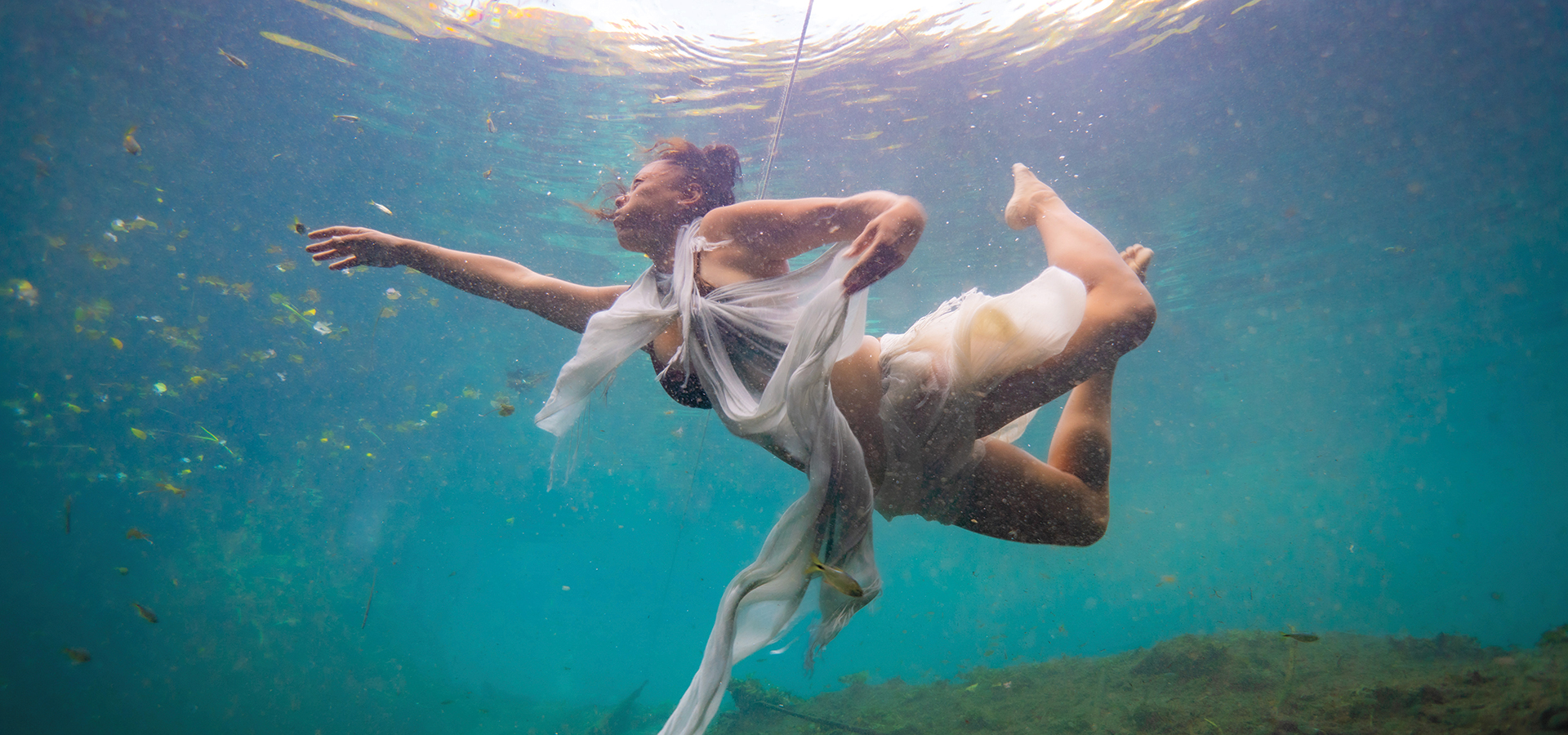
In 2020, during the pandemic, she embarked on a new hobby. A general worry about supply chain issues prompted her to learn spearfishing for its practical value, providing fish for family and friends.
“If we are willing to go deep and explore the unknown, there is a sense of beauty among fear and discomfort.”
After her first few dives, she was drawn to the “magical other world where time appears to move at a different speed.” It was something she knew she wanted to share, and yet she also understood the dangers after tragically losing colleagues and friends to the sport. With that knowledge, she set out to get certified in free diving and become an instructor.
She trained in Egypt and Mexico, taught a spearfishing class in Cornwall, England, and is one of a few people in the world to free dive into the icy cold water near a glacier in Alaska. Water serves as a backdrop for her photography—a natural place to explore with wonder and a symbol of her life’s work. Forever curious, she constantly pushes to see what’s under the surface and dive deep—whether into the ocean or her psyche.
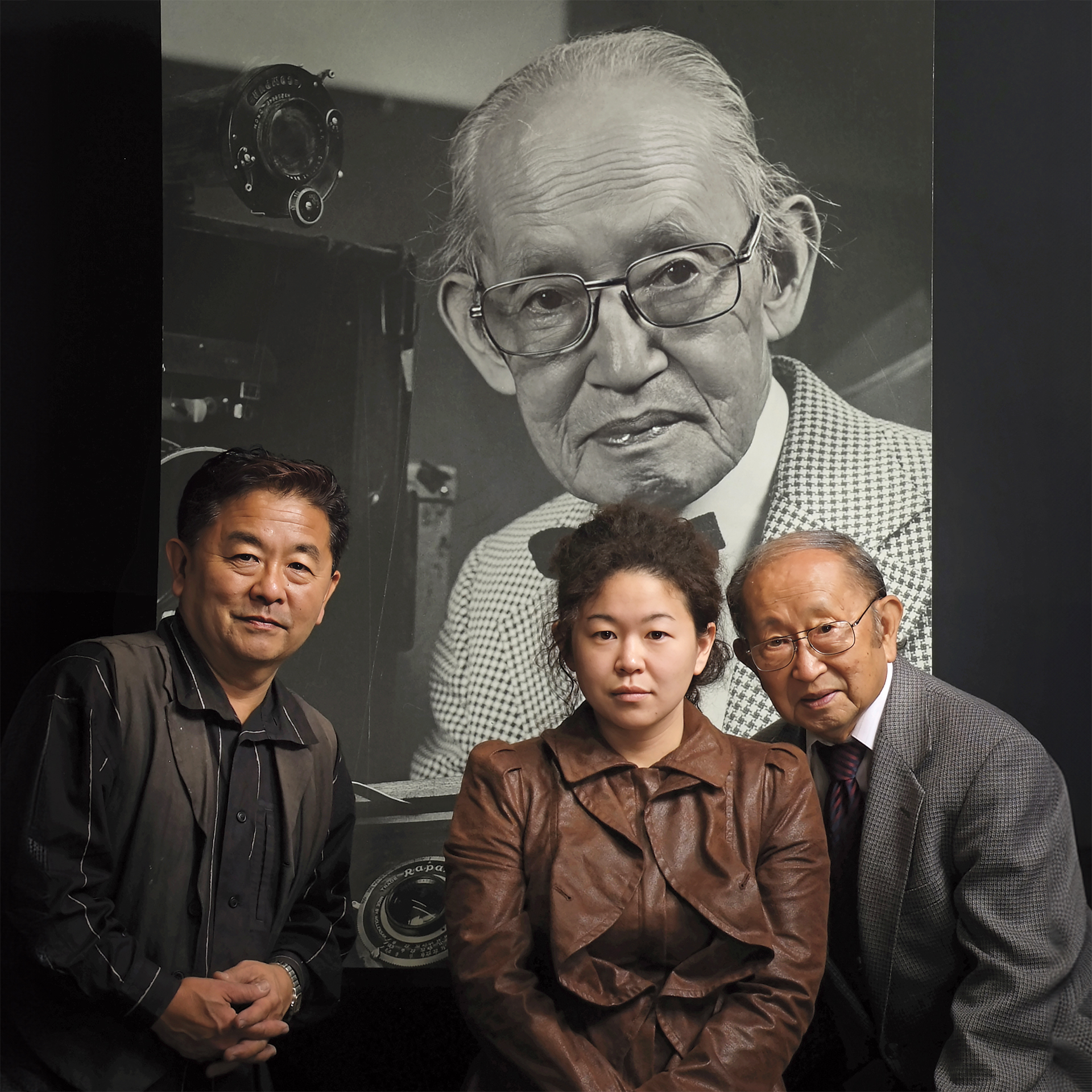
Photographed by Gary Toyo Miyatake
Joy says your consciousness and awareness shift to your surroundings underwater. “It’s an indescribable experience for non-divers,” she shares. “Imagine a heightened, dreamlike state of walking through a deep-sea kelp forest illuminated by beams of sunlight. And if luck would have it, a whale might swim beneath you.”
Her diving experiences and unique photos highlight the ethereal beauty of exploring a world under the surface. A dancer captured in motion—free, fluid, suspended in an altered state. A free diver loosely tethered to a rope line, as if from another realm. Composing, harnessing the light and shooting come naturally to Joy. It’s in her DNA.
She sees parallels between what lurks under the surface and the subconscious mind. The water is Joy’s place to find serenity, healing and peace in the moment while connecting to both the future and her past. She says, “If we are willing to go deep and explore the unknown, there is a sense of beauty among fear and discomfort.”






